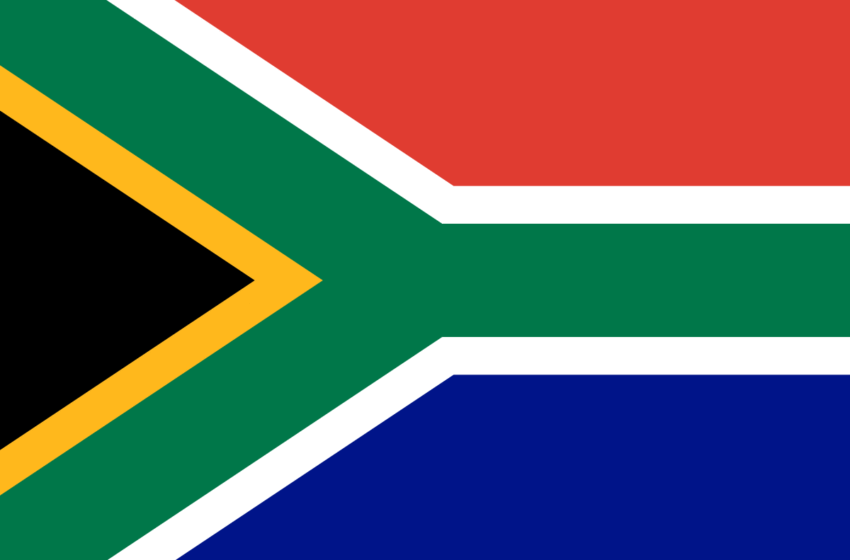Azania explained: The legal process to rename South Africa in a democratic system

Azania vs South Africa: Inside the legal steps for a national name change
Changing the name of a country is one of the most symbolic and legally complex acts in any democracy. It’s not just a matter of public sentiment—it involves constitutional procedures, parliamentary approval, and public participation, often over an extended period.
In South Africa, the ongoing proposal to change the country’s name to Azania has brought renewed attention to what such a change would entail under the law.
1. Constitutional Amendment Requirements
At the heart of the process is the Constitution of the Republic of South Africa, 1996. Any change to the name of the Republic would require an amendment to Section 1(a) of the Constitution, which defines the Republic of South Africa as a sovereign, democratic state.
➤ What this means:
-
The name “South Africa” is enshrined in the Constitution.
-
Altering it requires a formal constitutional amendment—a high legal threshold.
➤ Legal threshold for amendment (Section 74 of the Constitution):
-
Two-thirds majority (at least 267 out of 400 votes) in the National Assembly
-
Six out of nine provinces must vote in favour via the National Council of Provinces (NCOP)
This is the same process required for other major constitutional changes, such as altering the Bill of Rights or the structure of government.
2. Initiation of the Process – Who Can Propose It?
Under Section 73 of the Constitution, a Member of Parliament (MP), a cabinet minister, or a parliamentary committee can introduce a constitutional amendment bill.
In the case of the name change to Azania, the African Transformation Movement (ATM)—a minority political party—submitted a written proposal to the Parliamentary Constitutional Review Committee.
If approved, the committee can:
-
Recommend the drafting of a bill to amend the Constitution
-
Initiate consultations with the Department of Justice and Constitutional Development
3. Public Participation and Consultation
South Africa’s democracy is founded on public participation, especially for constitutional changes. The Parliamentary Rules and the Constitutional Court’s jurisprudence require:
-
Public notices and written submissions
-
Public hearings and community consultations at local and provincial levels
-
Transparent processes through media and civic platforms
Any constitutional change that lacks meaningful public involvement risks being declared invalid, as seen in landmark cases like Doctors for Life v Speaker of the National Assembly (2006).
READ ALSO
What is Azania? The powerful name South Africa may soon adopt
South Africa to Azania? The name change proposal dividing the nation
4. Legislative Drafting and Debating
If the proposal gains traction:
-
A Constitutional Amendment Bill is drafted by Parliament’s legal services
-
The bill goes through public debate, committee consideration, and possibly amendment
-
It must then be voted on by the National Assembly and the NCOP
Each step is subject to transparency, record-keeping, and adherence to democratic norms. Political parties must whip support from their MPs and provinces.
5. Presidential Assent and Constitutional Compliance
If Parliament passes the amendment:
-
It is sent to the President for assent and signature
-
The new name takes legal effect from the date stated in the amendment bill
-
All relevant legislation (e.g., the Constitution, Currency Act, Passports Act, Diplomatic Protocols) must be updated to reflect the change
South Africa would also need to notify international bodies, including:
-
The United Nations
-
The African Union
-
Foreign governments and global financial institutions
6. Administrative and Legal Overhaul
Changing the name of a country has far-reaching legal and administrative consequences:
-
Reprinting of identity documents, birth certificates, and passports
-
Updating signage, seals, stamps, and government stationery
-
Renegotiating or updating bilateral and multilateral treaties
-
Revising the curriculum and historical references in schools
-
Amending all laws where “South Africa” is referenced, potentially thousands of statutes
This would require inter-departmental coordination, additional legislation, and significant budget allocation—subject to Parliamentary oversight.
7. Legal Challenges and Constitutional Review
Given the political and symbolic nature of a name change, it may face:
-
Court challenges from opposition parties, NGOs, or civil groups
-
Petitions for referenda or alternative public consultation processes
-
Calls for judicial review to determine if the process followed all democratic procedures
Any misstep—especially in public participation or provincial votes—could render the process unconstitutional, and the name change null and void.
A High Bar for a High-Stakes Change
Changing the name of a democratic nation like South Africa involves more than political will. It demands:
-
Deep public engagement
-
Broad political consensus
-
Strict constitutional compliance
-
National and international coordination
While the call to rename South Africa to Azania is steeped in history and symbolic power, the legal road is long and complex. It is a test not just of sentiment, but of South Africa’s constitutional maturity and commitment to inclusive, participatory governance.

